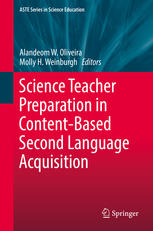

Most ebook files are in PDF format, so you can easily read them using various software such as Foxit Reader or directly on the Google Chrome browser.
Some ebook files are released by publishers in other formats such as .awz, .mobi, .epub, .fb2, etc. You may need to install specific software to read these formats on mobile/PC, such as Calibre.
Please read the tutorial at this link: https://ebookbell.com/faq
We offer FREE conversion to the popular formats you request; however, this may take some time. Therefore, right after payment, please email us, and we will try to provide the service as quickly as possible.
For some exceptional file formats or broken links (if any), please refrain from opening any disputes. Instead, email us first, and we will try to assist within a maximum of 6 hours.
EbookBell Team

4.8
84 reviewsThe primary purpose of this book is to provide science teacher educators with exemplars of professional development programs designed to prepare school teachers to effectively help language learners in science classrooms simultaneously gain language proficiency and conceptual understanding. To this end, this book examines seventeen science teacher preparation programs that span a wide variety of grade levels (elementary, middle, and secondary), countries (Italy, Luxemburg, Spain, UK, and US), and linguistic contexts (English as a Second Language, English as a Foreign Language, trilingual classrooms, and teaching deaf children science through sign language). The book is divided into three main parts. Each part consists of chapters that illustrate a common, cross-cutting theme in science teacher preparation in content-based second language acquisition, namely pre-service teacher preparation, in-service teacher preparation, and international perspectives. Each part provides many insights on the similarities and differences in the professional development approaches used to prepare science teaching with varied amounts of instructional experience help students in different parts of the world overcome linguistic barriers while simultaneously learning concepts central to science. Bringing together researchers from various academic backgrounds (science education, TESOL, and Applied Linguistics), attention is given to varied facets of the intersection of science and language learning in the specific context of school teacher preparation.